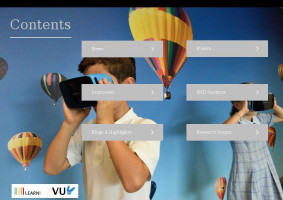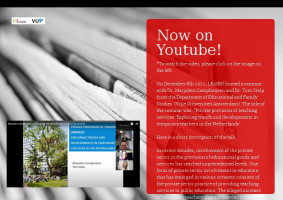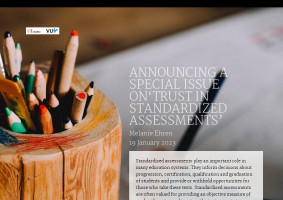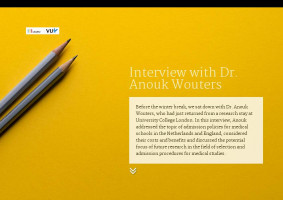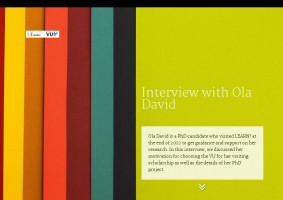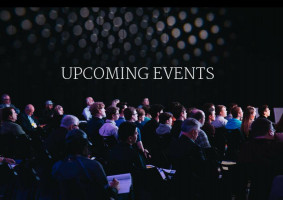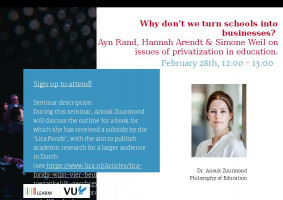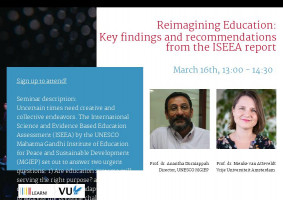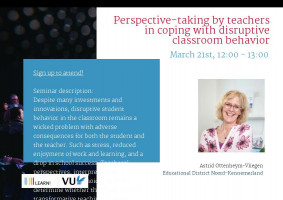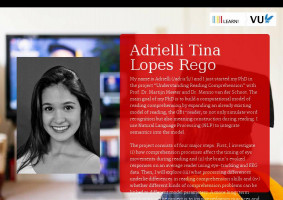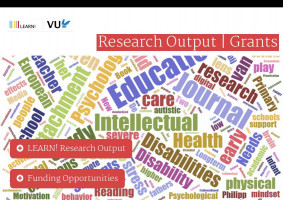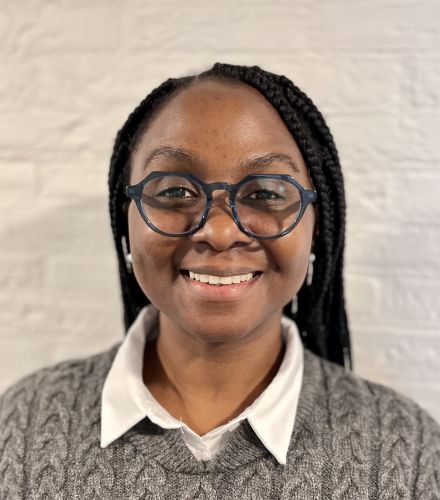
COULD YOU PLEASE INTRODUCE YOURSELF AND TELL US A BIT ABOUT YOUR PROFESSIONAL BACKGROUND?
My name is Ola David and I am a PhD candidate. My research is focused on education decentralisation in sub Saharan African (SSA) countries. I became interested in decentralisation reformations because of my experience as an education adviser within the UN system. I see first-hand how reforms that revolve around education development are advocated at a high level within the UN, however, I am curious to know how such reforms translate into day to day decision-making practices; especially at lower levels of implementation where they are expected to wield the most impact. To some extent, the research emerging from SSA is not clear on what is attainable through the agency of stakeholders, what their decision-making practices look like and how it may or may not be linked to the desired education outcomes. This is why I am exploring education decentralisation through the lens of the stakeholders who are at the core of implementing decentralisation at lower levels of decision-making. I think that fairly sums up what my PhD research entails.
WHAT METHODS ARE YOU USING IN YOUR RESEARCH?
Currently, I am conducting a review of literature using framework synthesis. Since the conceptualization of education decentralisation is underdeveloped within the context of SSA, I developed a conceptual framework for the review using relevant sensitising concepts. The framework was used as a scaffolding device for opening-up the literature for synthesis
and for coding the data obtained from the studies included in the review.
Upon completion of the literature review, I intend to conduct a policy analysis. I am going to focus on a specific education decentralisation policy implemented in Lagos -state Nigeria. Policy document analysis generally relies on data obtained from documents and accounts of people. My methodology will involve deconstructing the data obtained from those two sources. This will allow me to clarify what the policy initially intended, and what was actually implemented in practice.
Next, I will move on to the empirical aspect of my research. My intent is to gather qualitative data from school principals in Lagos- state, Nigeria. My research will explore their perspectives about their decision-making practices within the context of education decentralisation. I will be conducting interviews in order to obtain richer data that will offer better clarity specifically on the autonomy they have to make decisions and their practices.
DO YOU ALREADY HAVE AN IDEA ABOUT A POLICY THAT YOU WOULD LIKE TO FOCUS ON?
My empirical research will focus on exploring the aftermath of the World Bank decentralisation project initiated in Lagos State Nigeria. The reason why I want to analyse that specific policy is because it is often referred to as a benchmark for other education decentralisation efforts in Nigeria. I believe it would be helpful to see first hand what the strengths of the policy were both from the analysis of the implementation framework and the perspective of core stakeholders who were involved in the implementation.
WHAT IS THIS PROJECT ABOUT?
The World Bank project was implemented in Lagos State Nigeria as an effort to implement education decentralisation. Policies were developed to enable school districts to become autonomous. The districts were allowed to make decisions related to the financing, management and organisation of schools, as well as the way teaching and learning environments are regulated. In this regard the schools were able to make tangible decisions that could actually impact the teaching and learning quality.
It was a real game changer for schools, since many school functions were previously centralised at a state level, under the direct supervision of the state commissioner of education.
WhICH PARTS OF THE PROJECT YOU HAVE JUST DESCRIBED ARE YOU WORKING ON HERE AT THE VU?
I have come here to work on my literature review, to present my work and to get some feedback. I had an opportunity to spend a whole day working with Melanie Ehren and Marjolein Camphuijsen. Based on their feedback, I have been able to further develop the conceptual framework and refine the methodology based on the focus of the research questions.
WHAT MADE YOU CHOOSE VU FOR YOUR VISITING SCHOLARSHIP?
It was mostly Melanie’s expertise in education and school governance, I always knew I wanted to do something concerning systems of decision making, so the VU was a perfect place for me. Melanie Ehren has been an excellent supervisor and provided me with great guidance, which really helped me to move forward with my work. My visit to the VU gave me the mental space to focus on my work and to immerse myself in an academic environment. I really enjoyed coming to campus everyday, because there was no distraction. The visit really shifted my perspective when it comes to research- it is mostly the attention that I started paying to the smallest details of my work. It helped me realise that those seemingly little details about my work are my intellectual contribution to research.
AS YOUR VISIT AT VU IS SLOWLY COMING TO AN END - WHERE ARE YOU GOING NEXT?
I am on my way back to the US but I already have plans to come back to Amsterdam in March, 2023. The visiting scholar opportunity was great for me, it was something that I always wanted to do, but couldn’t because of the pandemic. On this particular visit I didn't have much time to go sightseeing and to really discover the city, as there were too many work-related things I wanted to accomplish. When I come back, I intend to explore the city and life in Amsterdam a bit more.

